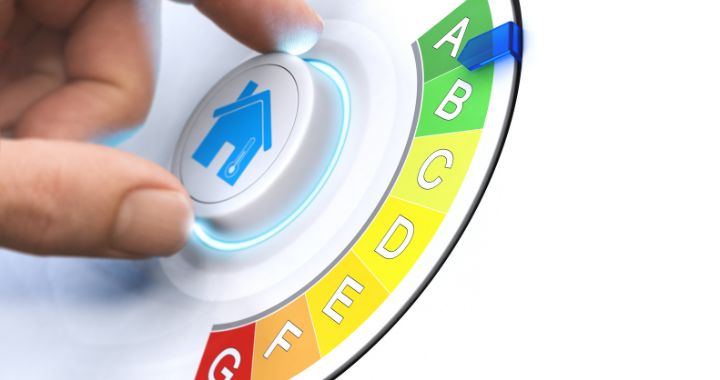When you’re considering a new air conditioner, checking the SEER rating is an essential factor. SEER, or Seasonal Energy Efficiency Ratio, measures how efficiently your air conditioner uses electricity. The higher the SEER rating, the less energy it consumes, which translates into lower utility bills. However, the benefits of a high SEER rating extend beyond just energy savings.
Discover all you should know about how SEER can directly affect your air conditioning performance in our guide below, and contact our team for high-quality air conditioning installation in Sussex.
What is a SEER rating?
A SEER rating, which stands for Seasonal Energy Efficiency Ratio, measures the efficiency of your air conditioner. Understanding what a SEER rating means can help gauge how efficiently your unit uses energy. The higher your air conditioner’s SEER rating, the more efficiently it operates, converting electricity into cooling power with minimal waste.
Modern air conditioners typically range from about 13 to 21 SEER. While higher ratings often cost more upfront, they can significantly save on energy bills over time due to their higher efficiency levels.
Importance of SEER in air conditioning systems
Choosing a high SEER rating positively impacts the environment. Efficient systems use less energy, which means fewer greenhouse gas emissions. Air conditioners with higher SEER ratings often have advanced technology and features that enhance comfort. These can include better moisture control, quieter operation, and more consistent temperatures throughout your home. It’s a win-win: You enjoy a more comfortable living environment while using less energy.
Impact of SEER ratings on air conditioning performance
Efficiency and energy consumption
As previously mentioned, higher SEER ratings indicate that your air conditioner uses energy more efficiently, reducing your cooling costs, lessening the environmental impact and significantly reducing your carbon footprint.
When you opt for a unit with a higher SEER rating, you invest in advanced technology that maximises energy use for every pound on your utility bills.
Cooling capacity and effectiveness
While SEER ratings are pivotal for efficiency, they also directly influence your air conditioner’s cooling capacity and effectiveness. Higher SEER ratings generally mean that your unit uses energy more effectively to cool your space. This is because they have advanced features like variable speed handlers and multi-stage compressors that fine-tune the cooling output to your needs.
This means you’ll likely experience more uniform cooling across your home or building. High SEER models adjust more precisely to temperature fluctuations, maintaining a more consistent comfort level without the frequent on-and-off cycles that plague less efficient models. This eliminates those annoying hot spots and contributes to a quieter operation since the system isn’t constantly ramping up to full blast.
Financial implications
You’ll also find that investing in a higher SEER-rated air conditioner can lead to significant financial benefits over time. While the upfront cost may be higher, the long-term savings on your energy bills can be substantial. This is because units with higher SEER ratings are more efficient at converting electricity into cooling power, meaning they use less energy to achieve the same cooling effect.
Every unit increase in SEER rating represents a potential decrease in energy use by about 10%. So, upgrading from an older, lower SEER unit to a newer, higher-rated model could slash your cooling costs dramatically. Over the lifespan of your air conditioner, which could be 10 to 15 years or more, these savings can add up to a significant amount, effectively offsetting the initial investment.
Choosing the right SEER rating
When choosing the right air conditioning unit, consider factors such as your usage patterns and the space size you need to cool.
High SEER-rated units are generally more energy-efficient, making them ideal for homes or offices with high cooling demands or large spaces where the air conditioning will run frequently. For smaller spaces or properties with moderate usage, a unit with a lower SEER rating might suffice and offer a better return on investment.
Get in touch for high-quality air conditioning in Sussex
If you’re seeking excellent air conditioning services in Sussex, Mechcool is your go-to expert. Our professional team utilises the latest air conditioning solutions, ensuring your space remains perfectly comfortable throughout the year.
Whether you’re looking to install a new system or need maintenance on an existing setup, Mechcool tailors services to meet your needs, ensuring functionality and aesthetic appeal.
Don’t compromise on comfort or cost. Contact Mechcool today to schedule your free site survey and discover how we can enhance your air conditioning system in Sussex.
Frequently asked questions
Can a higher SEER rating reduce allergy symptoms indoors?
A higher SEER rating can reduce allergy symptoms indoors by maintaining cleaner, more filtered air. Fewer allergens will circulate, making your indoor environment more comfortable and healthier to breathe.
How often should SEER ratings be re-evaluated?
You should re-evaluate your SEER rating every few years to guarantee peak air conditioner efficiency. Regular checks help maintain performance, potentially reducing energy costs and environmental impact over your system’s lifetime.
Do SEER ratings affect AC unit longevity?
Yes, SEER ratings can affect your AC unit’s longevity. Higher SEER units often run more efficiently and cycle less frequently, reducing wear and tear and potentially extending the life of your system.

